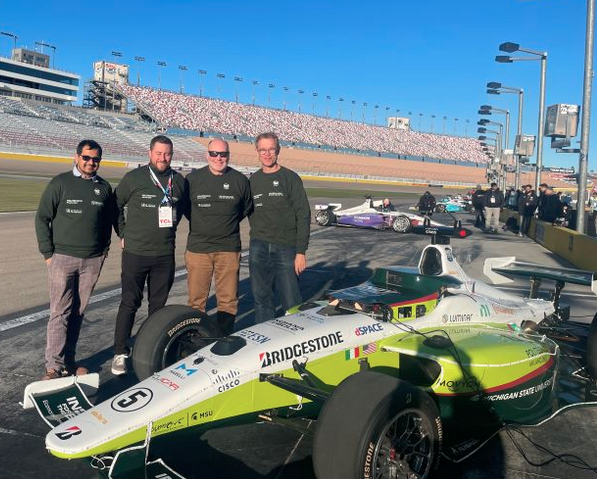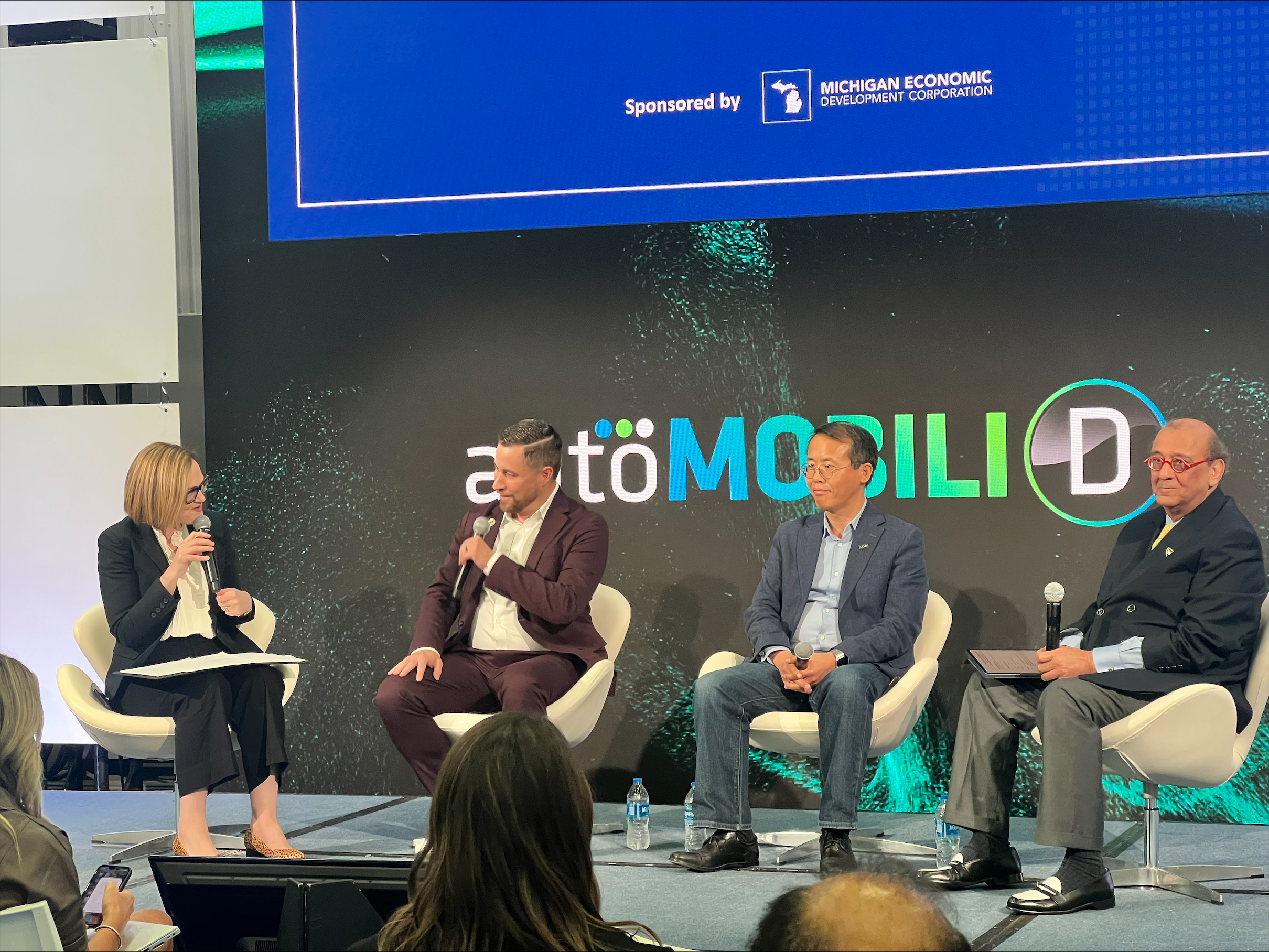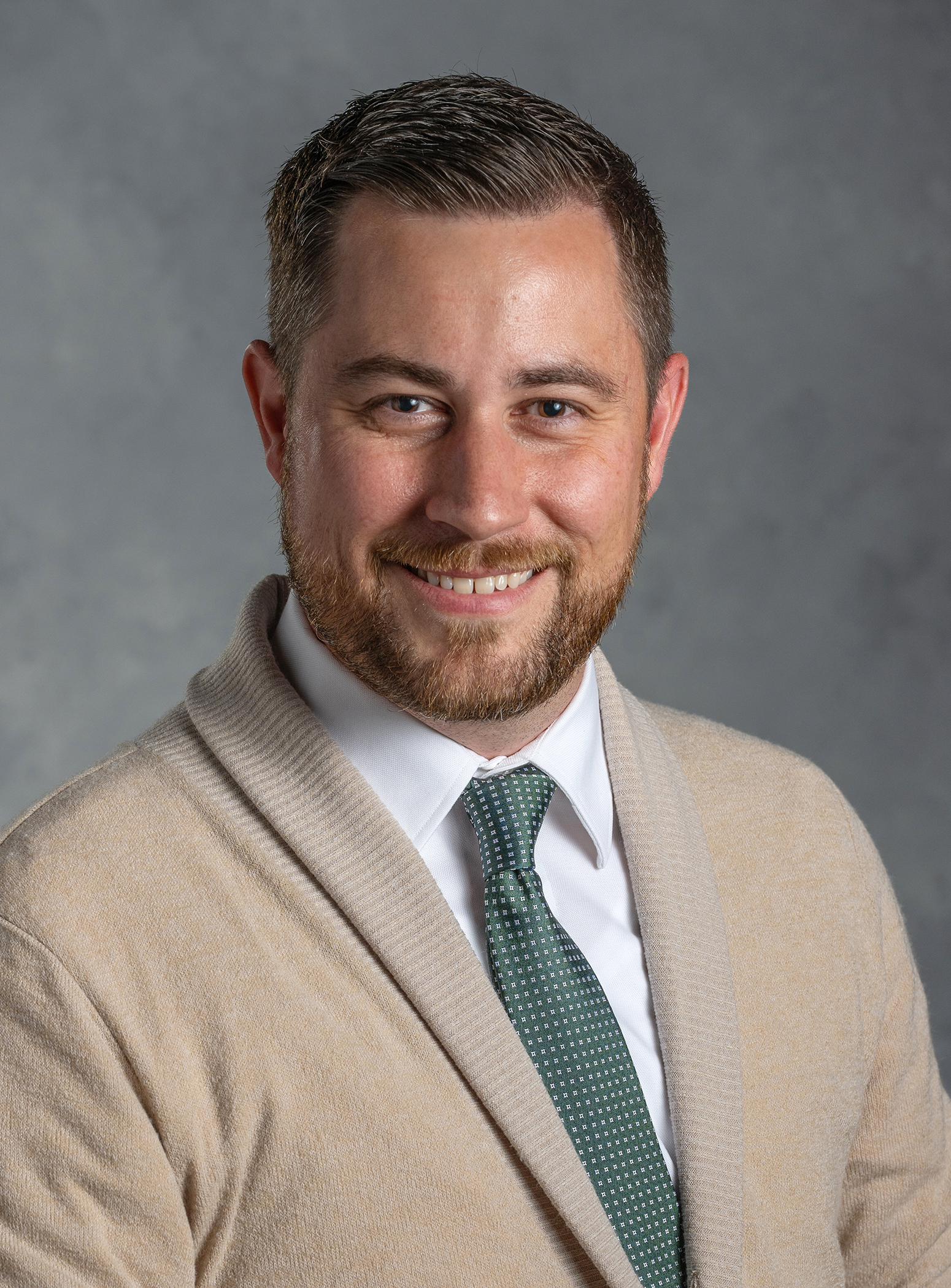Judd Herzer is the director of MSU Mobility at Michigan State University.
The future of mobility will have a tremendous impact on the fabric of our everyday lives. Here on campus, MSU Mobility is advancing talent and innovation for all forms of mobility through our campus-wide collaboration across six MSU colleges, student engagement, research excellence, an unrivaled real-world testing ecosystem, and results-focused partnerships that catalyze the economic impact of Spartan innovations.
For the past year, I have had the pleasure of leading MSU Mobility. It has been truly fascinating to uncover the sheer number of mobility-oriented projects the university takes on, the number of faculty members who are defining what’s next in the space and the thrilling potential for our program.
Since joining MSU Mobility, I’ve witnessed new projects get underway, helped forge new partnerships, worked to create awareness among our wide range of stakeholders and — through the support of a great team of faculty and researchers — made significant steps toward streamlining our resources and better defining our path forward. We launched recurring meetings with a Mobility CORE group of faculty to weigh in on priorities and help mine for data to identify goals that will greatly contribute to our strategic plan. Plus, our MSU Mobility Advisory Council has reengaged and grown, bringing a host of valuable expertise from key industry experts who will help guide us on the way.

Our participation with the Indy Autonomous Challenge as part of the PoliMOVE-MSU racing team is just one of the exciting new projects we’ve become involved with in the past 12 months. This high-speed autonomous vehicle racing platform offers an exhilarating, real-world scenario for students to apply their classroom knowledge in one of the most extreme environments imaginable. What I truly love about this experiential learning opportunity is it gives students the chance to both identify Michigan’s mobility sector as their future career field and develop a positive team mindset about competing in the private sector. That competitive attitude erupted into celebration in July when we set two autonomous race car records at the Goodwood Festival of Speed — achieving the hill climb in 66.37 seconds and hitting a top speed record of 111 mph. I’m beyond thrilled that Spartans are breaking new ground for autonomous vehicle technologies, pushing driverless vehicles at top racecar speeds. I’ll be eagerly awaiting our next big race in Indianapolis in September!
MSU faculty members, post-doctoral researchers and graduate students have also been making headway with the new mobility research initiative that launched in cooperation with the U.S. Army Ground Vehicle Systems Center and with funding from the U.S Department of Defense last summer. Along with two other universities, MSU is aiming to build lightweight, all-terrain autonomous electric vehicles that will create a technological edge in our nation’s autonomous mobility and support national security efforts. This five-year program will be a prime example of creating the next-generation STEM workforce.

Another exciting project of note is MSU Mobility’s collaboration with ADASTEC, a leading software company specializing in automated driving solutions. Thanks to this partnership and the help of Vicinity Motor Corp., a producer of electric and clean-energy vehicles, MSU will soon be home to a new, full-size electric autonomous bus. The bus is expected to arrive on campus this summer with plans to take passengers in the fall, following a robust series of tests and certifications. Having this bus on campus gives MSU an incredible competitive advantage in our mobility research as we gain access to loads of real-life testing data and give our students a unique transportation opportunity they may not get elsewhere.
To spur awareness and excitement while also encouraging student and community involvement about the arrival of this 28-foot bus, we launched a bus naming contest this spring that garnered more than 240 submissions! The winning name — SpartanXpress — will soon be featured prominently on the wrap of the bus. If you have the chance once it’s operational, I highly encourage you to take a ride on the SpartanXpress and get a taste of the future of mobility yourself.
Speaking of seeing mobility firsthand, I’ve had the pleasure of getting an array of lab tours and introductions to awe-inspiring innovators and their advanced research projects here on campus and can confidently say that the future of mobility starts here. MSU's mobility research goes well beyond public transit and automotive advancements, capitalizing on a wide range of academic disciplines and enabling us to pioneer safer, more equitable and sustainable multi-modal transportation solutions for people and goods.
We are actively pursuing even greater advanced mobility projects and I am looking forward to sharing all of the new developments later this year and beyond.
